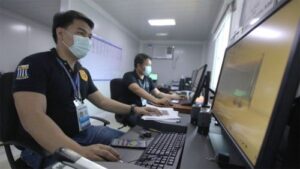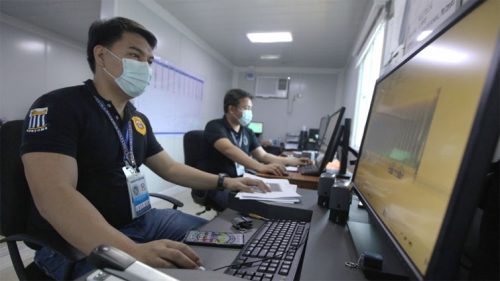
The Bureau of Customs (BOC) has released a new order prescribing operational procedures and roles of concerned customs offices and districts in implementing an enhanced cargo selectivity system.
Customs Memorandum Order (CMO) No. 21-2020, which took effect on September 1 but made available on BOC’s website on September 3, covers operational procedures of BOC’s Risk Management Office (RMO) in terms of data gathering and analysis, risk assessment, profiling and targeting, updating of the selectivity criteria and parameters, and monitoring and evaluation of the results.
It also covers roles of other concerned offices and/or collection districts nationwide in improving the risk management process and selectivity system.
BOC’s selectivity system refers to the application of risk management and use of risk-based channeling (red, yellow, green) to allow the agency to “allocate its scarce resources to the high-risk areas while increasing the efficiency of the clearance process for low-risk shipments.”
CMO 21-2020 mandates BOC to use sophisticated methods to identify and target high-risk cargo, including advance electronic information about cargo shipments to and from a country before they depart or arrive; strategic intelligence; automated trade data anomaly analysis; and the relative security of a trader’s supply chain.
The RMO should also generate a score card that will measure compliance and/or risk levels of importers, exporters, customs brokers, commodities, and other essential profile categories, based on consolidated reports from all sources.
The score cards and other related information should be treated with utmost confidentiality and be made available only to the Customs commissioner, deputy commissioner for Intelligence Group (IG), and authorized RMO personnel.
BOC should also create a data warehouse that will be the main source of information for generating and analyzing reports.
The IG deputy commissioner should regularly convene members and other concerned offices to ensure every field in risk management is well represented “through holistic decision making, overseeing the risk management and cargo selectivity process, assuring integrity of those processes, monitoring the productivity of RMO, and securing that the processes are supported throughout the BOC through a risk management policy that is regularly reviewed and revised.”
A customs employee who violates provisions of CMO 21-2020 will be held administratively liable, and may be imposed additional penal sanctions.
The issuance of CMO 21-2020 is in time for the scheduled complete delivery of all features of BOC’s new Universal Risk Management System (URMS), which was introduced last June to improve the agency’s risk management capabilities.
READ: BOC adopts new risk management system
BOC said it will be migrating information to URMS, which has a more user-friendly interface and allows for a larger amount for storage of information and the promotion of a paperless system. Initial implementation of the URMS to all ports has been conducted and will provide RMO with a quicker means of tagging shipments based on existing risk management parameters.
Customs Commissioner Rey Leonardo Guerrero early this year described BOC’s risk management system as “the engine that drives many of the processes and transactions involving the bureau.”
Guerrero said the accuracy of their risk management “has greatly improved” and will be further developed through technology acquisition and better monitoring by and coordination between offices responsible for risk management.
In 2019, with the help of its risk management system, BOC issued a total of 926 alert orders, of which 675 were positive and 202 negative, rendering an effectivity rate of 76.96% and resulting in the collection of P40.943 billion in additional revenue.
Guerrero noted the issuance of alert orders last year had been “highly targeted and highly selective” so as not to “unnecessarily impede [the] processing [of] shipments.” – Roumina Pablo





